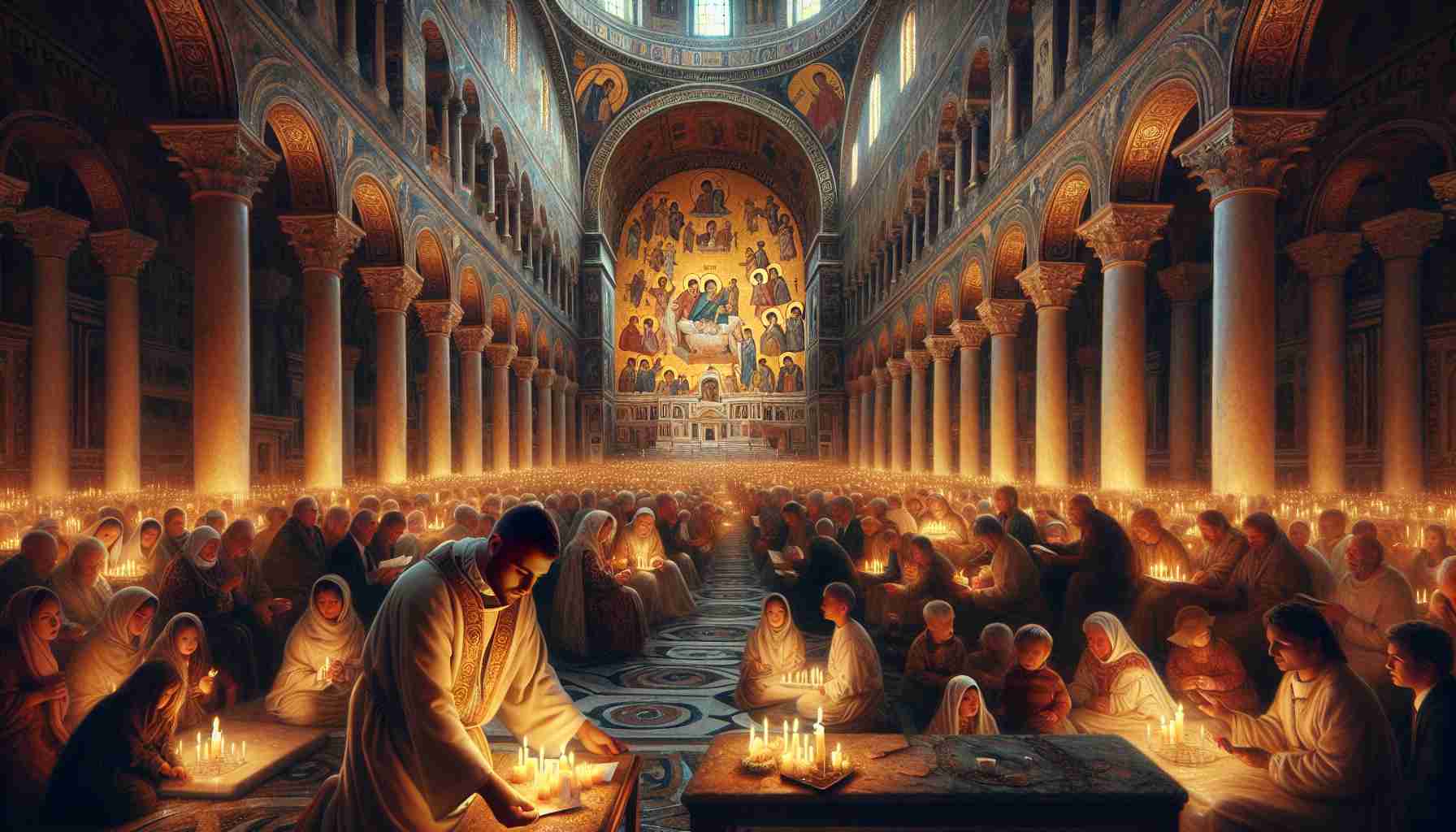

Snow clung to the tiled rooftops of Rome, its softness dimming the usual clamor of the streets. A hush had settled on the city, not born merely of winter’s grip, but of something newly sacred. For the first time in recorded memory, the Christians of Rome gathered not for martyrdom or hidden worship—but for celebration.
In the shadow of the basilica of St. Peter, its stones still young beneath the hand of Emperor Constantine’s masons, a flicker of joy stirred like the flame of an oil lamp. Word had spread across the seven hills: the Nativity of Christ would be honored this day, December 25, in the year 336.
Within the basilica’s vast nave, incense coiled upward, mingling with the chilled breath of the faithful. Columns of marble rose like forest trunks, guiding eyes to the gold mosaic beneath the apse, where Christ reigned in eternal glory. But today, they came not to behold the triumphant Savior—but to rejoice in the child swaddled in Bethlehem.
They had heard the scripture read aloud again and again: “For unto you is born this day in the city of David a Savior, which is Christ the Lord” (Luke 2:11). The voice of the lector trembled as he spoke it, as though the words still carried the echo of angelic choruses over shepherded fields.
Gaius, an aging deacon, wept from the stone bench where he knelt. He had hidden in catacombs during the persecutions of Diocletian. He had watched lion-bound brethren sing psalms until the claws silenced them. But this—this feast of joy in open daylight—felt like a miracle greater than survival.
A boy brushed past him, breath white in the air, clutching a wax tablet engraved with a Chi-Rho. “They say Pope Julius fixed the date,” the child whispered excitedly, “so all Christians would rejoice together!” Gaius smiled, recalling the bishop’s wise words only month prior: to illuminate Christ’s birth on the very day pagans honored the invincible sun, Sol Invictus, was to declare that Christ alone bore eternal light.
Outside, the forums glittered with lanterns—remnants of earlier Saturnalia festivals—but now borrowed for a greater purpose. That which once honored gods of indulgence now heralded the birth of divine humility. Where fertility rites once raged, prayers now rose. Beneath porticoes where incense had honored Mithras, voices burst into hymn.
Yet not all was peace. Rumors whispered within darker vestibules. Some clerics questioned the date. Was Christ truly born in December? Did Judean shepherds abide by night in the dead of midwinter? Others nodded solemnly, pointing to prophecies fulfilled, signs in stars, the convergence of meanings.
It mattered not to young Theophilus, a priest who had once studied the old philosophers of the Palatine. This day, beneath the echoing vaults of St. Peter's, he raised a newborn wafer toward the dawn. “Behold the Lamb,” he murmured. “Born to be broken.”
His voice carried over the weeping, the whispering, the carols stitched together by earlier martyrs’ mouths. For in their defiance, the early Christians had not only preserved their faith—they sanctified a culture. They aligned heaven with earth through rhythm and ritual, not by swords but by symbols repurposed for the glory of Christ.
In the center aisle, pilgrims from distant Britannia shivered in cloaks soaked with sleet, their faces awash in awe. They had traveled weeks to Rome upon learning the Holy Father would declare this feast. Their clan had long hidden their worship among oak groves and village shrines—but now, in stone grandeur, they stood open-eyed as faith transcended borders and tongues.
Bishop Julius stepped to the ambo. An elder’s age touched his beard, but conviction burned in his voice: “Rejoice, beloved, not for the date, but for the birth. For the child born in the manger is He through whom all time is measured. Today, we join heaven’s choir who once thrilled shepherds. Keep this feast in joy—small or great, poor or mighty—and His light will blaze even in Rome’s marble heart.”
From the chancel, the choir began the Gloria. Light broke through high windows. And as the sun climbed over the Tiber, gilding the basilica’s lantern, a pilgrim from Antioch collapsed to his knees, mouth agape. “In my land, they scourge us still,” he gasped. “But here... they crown Him with praises.”
None could know then that centuries later, sermons from men like John Chrysostom would unfold the mysteries tied to this very day. Nor could they guess that across ages and continents, December 25 would become a beacon against darkness, a gathering of hearts once divided by tongues, tribes, and emperors.
But on that first recorded Christmas, faith shimmered like candlelight in Rome’s narthex, stubborn against winter, haunting in its beauty. Christ had come, and now, finally, so had the world’s reply.